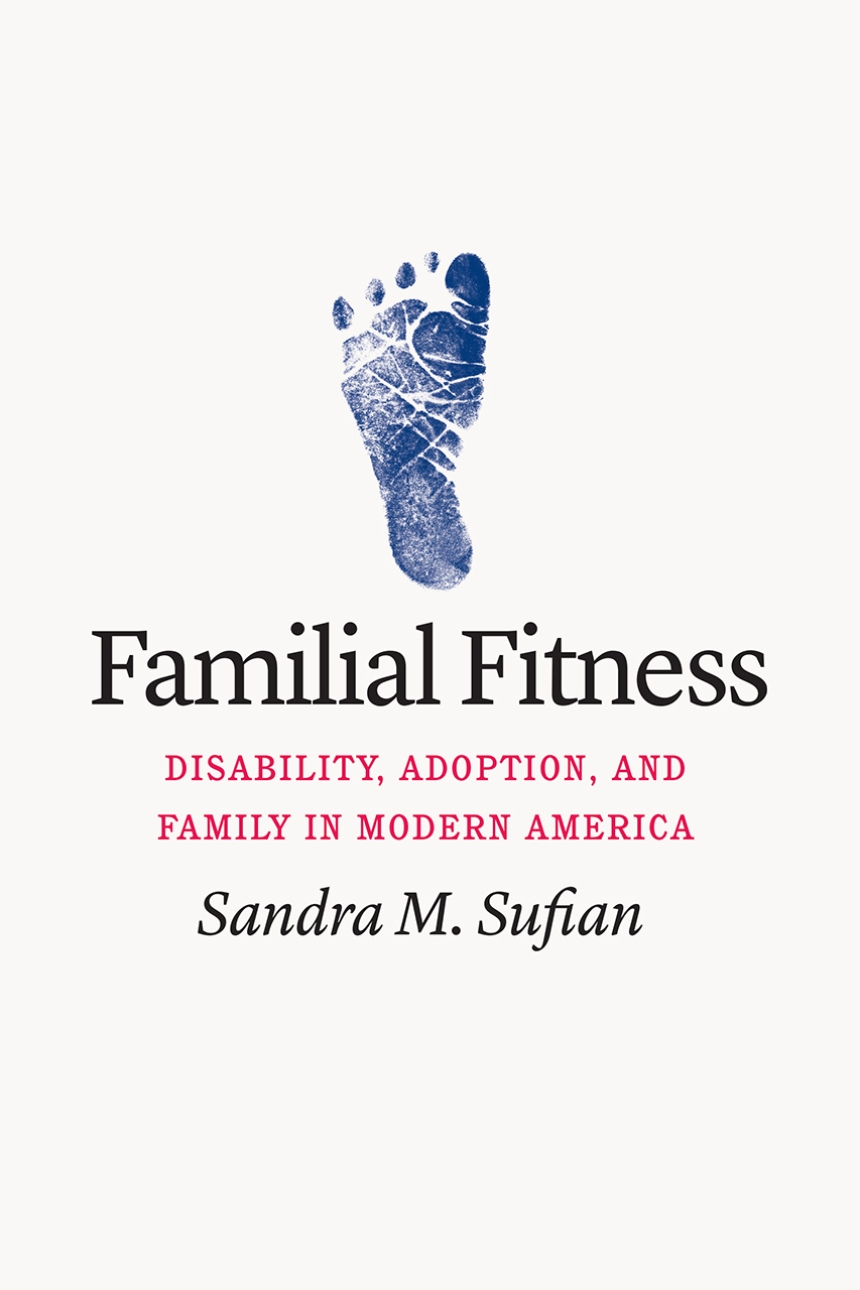Familial Fitness
Disability, Adoption, and Family in Modern America
9780226808703
9780226808536
9780226808673
Familial Fitness
Disability, Adoption, and Family in Modern America
The first social history of disability and difference in American adoption, from the Progressive Era to the end of the twentieth century.
Disability and child welfare, together and apart, are major concerns in American society. Today, about 125,000 children in foster care are eligible and waiting for adoption, and while many children wait more than two years to be adopted, children with disabilities wait even longer. In Familial Fitness, Sandra M. Sufian uncovers how disability operates as a fundamental category in the making of the American family, tracing major shifts in policy, practice, and attitudes about the adoptability of disabled children over the course of the twentieth century.
Chronicling the long, complex history of disability, Familial Fitness explores how notions and practices of adoption have—and haven’t—accommodated disability, and how the language of risk enters into that complicated relationship. We see how the field of adoption moved from widely excluding children with disabilities in the early twentieth century to partially including them at its close. As Sufian traces this historical process, she examines the forces that shaped, and continue to shape, access to the social institution of family and invites readers to rethink the meaning of family itself.
Disability and child welfare, together and apart, are major concerns in American society. Today, about 125,000 children in foster care are eligible and waiting for adoption, and while many children wait more than two years to be adopted, children with disabilities wait even longer. In Familial Fitness, Sandra M. Sufian uncovers how disability operates as a fundamental category in the making of the American family, tracing major shifts in policy, practice, and attitudes about the adoptability of disabled children over the course of the twentieth century.
Chronicling the long, complex history of disability, Familial Fitness explores how notions and practices of adoption have—and haven’t—accommodated disability, and how the language of risk enters into that complicated relationship. We see how the field of adoption moved from widely excluding children with disabilities in the early twentieth century to partially including them at its close. As Sufian traces this historical process, she examines the forces that shaped, and continue to shape, access to the social institution of family and invites readers to rethink the meaning of family itself.
Download the Bibliography.
360 pages | 5 halftones, 2 line drawings, 1 tables | 6 x 9 | © 2022
History: American History
Reviews
Table of Contents
List of Figures
List of Abbreviations
A Note on Language
Introduction. Disability and Belonging in Adoption History
Part I. Expecting Normality: 1918–1955
Chapter 1. Exclusionary Practices in the Age of Eugenics and Child Welfare
Chapter 2. Risk Equivalence and the Postwar Family
Part II. Working toward Inclusion: 1955–1980
Chapter 3. Love, Acceptance, and the Narrative of Overcoming
Chapter 4. From Overcoming to Programmatic Solutions
Part III. Continued Obstacles: 1980–1997
Chapter 5. Institutional and Structural Barriers to the Adoption of Children with Disabilities
Chapter 6. The Limits of Inclusion
Epilogue. A Usable Past: Thinking about Contemporary Practice in Light of History
Acknowledgments
Appendix 1. Suitability of the Child for Adoption
Appendix 2. Suggestions for Summary of Information as to Family History
Appendix 3. Chronology of Relevant Federal Bills and their Provisions
Appendix 4. Handicapping Conditions of Children Listed on Adoption Exchanges in 1985
List of Archives
Notes
Index
The bibliography can be found at /sites/sufian/.
List of Abbreviations
A Note on Language
Introduction. Disability and Belonging in Adoption History
Part I. Expecting Normality: 1918–1955
Chapter 1. Exclusionary Practices in the Age of Eugenics and Child Welfare
Chapter 2. Risk Equivalence and the Postwar Family
Part II. Working toward Inclusion: 1955–1980
Chapter 3. Love, Acceptance, and the Narrative of Overcoming
Chapter 4. From Overcoming to Programmatic Solutions
Part III. Continued Obstacles: 1980–1997
Chapter 5. Institutional and Structural Barriers to the Adoption of Children with Disabilities
Chapter 6. The Limits of Inclusion
Epilogue. A Usable Past: Thinking about Contemporary Practice in Light of History
Acknowledgments
Appendix 1. Suitability of the Child for Adoption
Appendix 2. Suggestions for Summary of Information as to Family History
Appendix 3. Chronology of Relevant Federal Bills and their Provisions
Appendix 4. Handicapping Conditions of Children Listed on Adoption Exchanges in 1985
List of Archives
Notes
Index
The bibliography can be found at /sites/sufian/.
